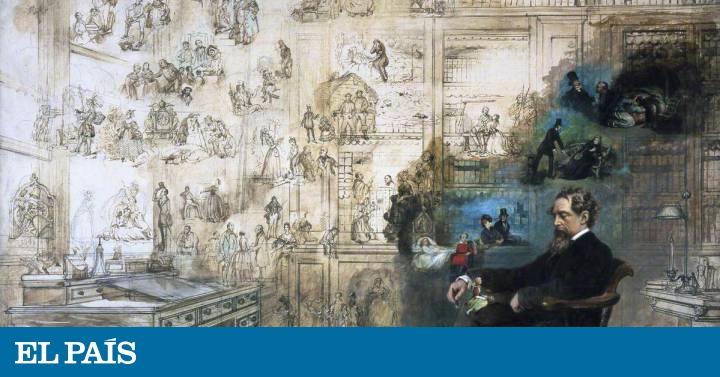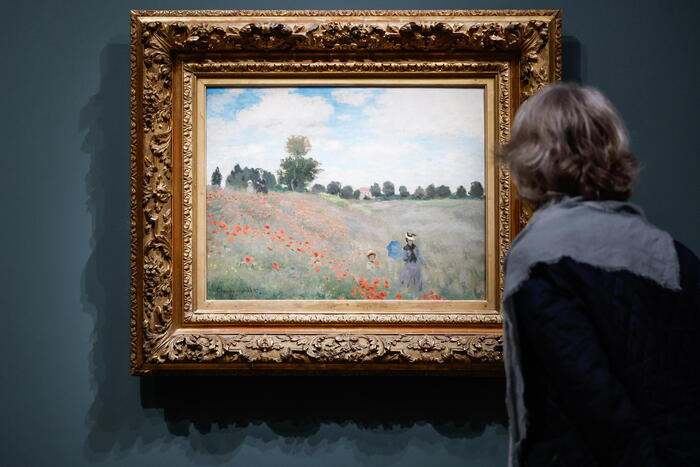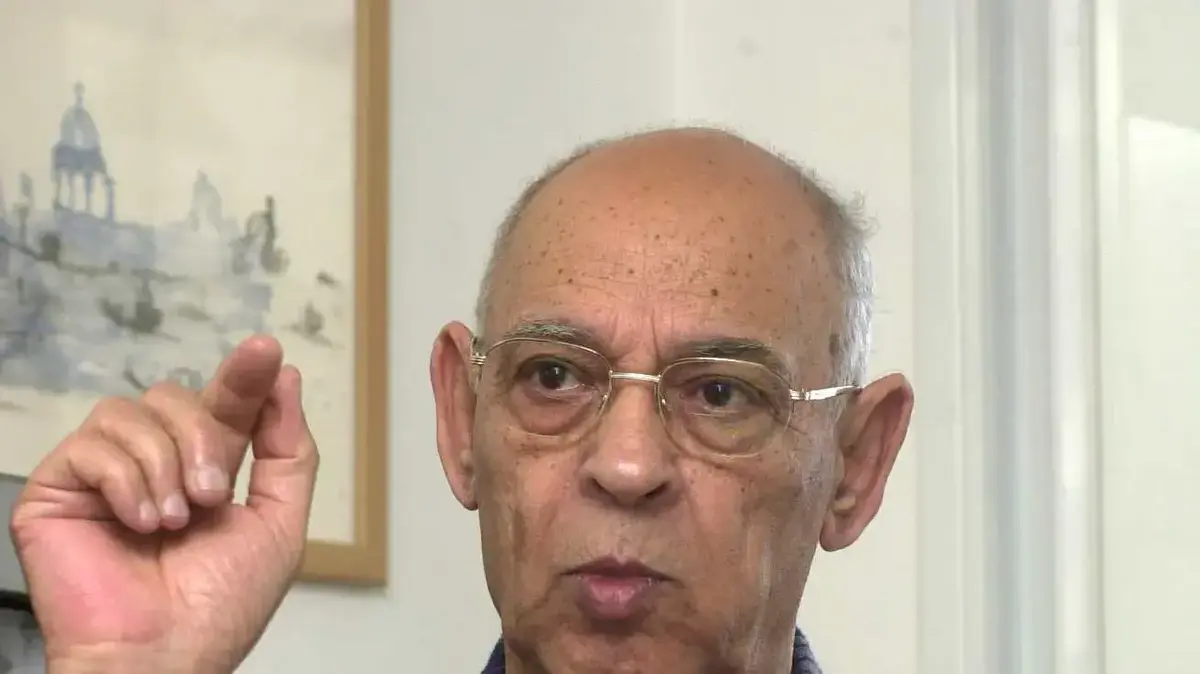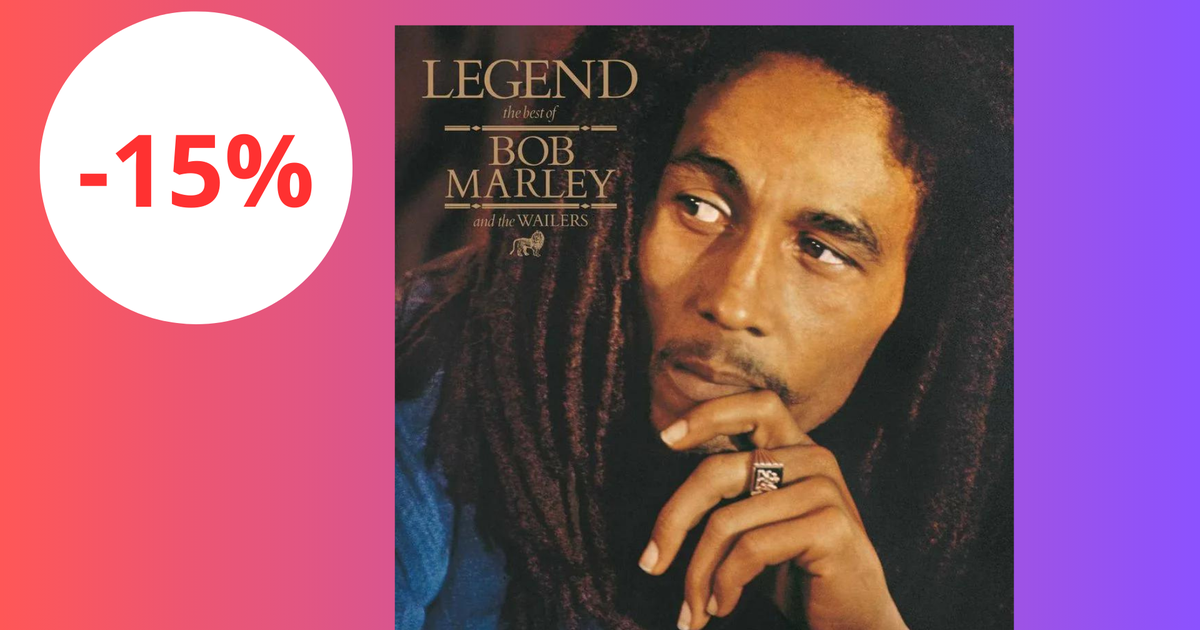Javier Marías
"His reality is never flat, because he does not offer it raw, but distilled"I started reading Dickens in childhood, maybe I premiered A Tale of Two Cities and followed up with Oliver Twist and David Copperfield (A Christmas Carol always bored me). I have never stopped frequenting it, and, as an adult, I met Desolate House, perhaps his best novel. I think that if his work survives, it is because those who succeed survive, from Cervantes, Shakespeare and Sterne to Proust and Faulkner: he was an extraordinary stylist, and his texts, under his melodramatic or humorous appearance, contain a depth that still makes us think and it reveals to us what we did not know that perhaps we intuited. They look like entertainment and they are; they seem addictive stories while one reads them, and they are; they seem realistic and even costumbrist at times, and they are, but to a limited extent, because the reality they present is a stylized reality and borders on the implausible, as the names of their characters demonstrate. His reality is never flat, because he does not offer it raw, but distilled.
Along with these passing virtues, it possesses the most lasting: Dickens writes wonderfully, and that, today so neglected or relegated, is the only thing that endures through the ages. To many of his contemporaries, authors of brochures, there is no one to resist them. He does, because each page of his contains stylistic findings of the first magnitude. The proof is that it is not easy to read it in English if you do not have a complete knowledge of that language; the proof is that the translations seldom catch up, as does Conrad, James and Faulkner. Even his most comical, "light" and Cervantine work, The Pickwick Club Papers , a monument to humor and good humor, is full of surprising literary successes. As for its depth, it suffices to quote a few paragraphs that I used at the end of my last published novel, Berta Isla . “Every human creature is destined to constitute a deep secret and mystery for all others. When I arrive in a big city at night, each one of those gloomily clustered houses contains its own secret; each room in each of them contains its own secret; each beating heart in the hundreds of thousands of breasts hidden there is, in some of its figurations, a secret to the closest heart, the one that dozes and beats at its side. And there is something in all of this attributable to fright. ” The quote is longer, and belongs to A History of Two Cities , considered one of his minor novels. What, then, will the major ones contain?
Her latest published novel is Berta Isla (Alfaguara, 2017).
Jonathan Coe
"He was horrified at the prospect of boring his audience, which explains many things in our literature ... and in our politics"My introduction to Dickens came through the movies, when I discovered a snippet from the beginning of David Lean's magnificent adaptation of Great Expectations in a children's television show. The image of Magwitch, the convict who takes over young Pip, in that foggy graveyard, haunted me for many years. When I first read Dickens as a teenager, I didn't associate it with the hard work of reading a classic author. In my mind, I already associated his work with mystery, suspense, and emotion.
Many consider him now as the great English novelist (I suppose only Jane Austen would challenge him for that crown, but I can't help but think that his canvas is smaller by comparison). Dickens contains some of the contradictions of English culture. On the one hand, it embodies that compassionate social criticism that represents the best of our nation. On the other hand, the grotesqueness of his characters, his humor and his disposition to use the tropes of detective fiction suggest that he was horrified at the prospect of boring his audience, and that seems significant to me. Remember that the English public will never listen to, trust, or forgive people who bore them, even if they are geniuses in every other way. That explains many things in our literature ... and in our politics, on the other hand.
His latest published novel is The Heart of England (Anagrama, 2019).
Dave Eggers
"I didn't read it until after 30, I had the curse of compulsory reading"“For some reason, they never made me read Dickens as a child. Everyone knew A Christmas Carol , but associated the name of Dickens with a distant and vague notion of old England. As an adult, I avoided it for a long time. He had the curse of compulsory reading. So imagine my surprise when, over the age of 30, I first read David Copperfield , and found him totally alive, extremely funny, with a big heart and fully accessible. I can't say that all of his novels have had the same effect on me, but overall, if we let Dickens be Dickens - a very popular and moralistic narrator, and not an intentionally canonical snob - we can keep his books going on being read. . They have a lot to teach us.
His last published novel is Heroes of the Frontier (Literatura Random House, 2017).
Posy Simmonds
"I did not like its female characters, extremely innocent or grotesque"Dickens' prose is extremely clever and encompasses a wide range of effects: fantastic, atmospheric, and cartoonish. Above all, he had a keen ear for dialogue, recognizing the comic potential in the way people talk, their colloquialisms, and bad pronunciations. I read Dickens at age 10, starting with Oliver Twist and A Christmas Carol , and then I read most of his novels during the school years. My favorite was and still is Desolate House , which I admire for its plot and for the satire of the former High Court of Chancery (a satire with resonances today, when the cost of legal proceedings exceeds the damages won). I also remember not liking most of Dickens' female characters, limited to the extremely innocent and extremely grotesque.
His legacy is engraved in the language: Dickensian is an abbreviation to describe extreme poverty; the incorrect use of a word is a malapropismo , like Mrs. Malaprop, and Scrooge is synonymous with a greedy being. A few years ago, I reread A Christmas Carol when Cassandra Darke started writing and drawing . I planned to do the story about a contemporary Scrooge, a female Scrooge. I walk around London a lot and at the time, the difference I noticed between the rich and poor districts, and the increasing number of beggars and homeless people on the streets, reminded me of Victorian London. Dickens's London was huge, vast, and coal blackened. He knew its beautiful houses and its miserable corners. London today is huge, sprawling and polluted by traffic. The beautiful houses and the miserable corners are still here.
Her latest published comic is Cassandra Darke (Salamandra Graphic, 2020).
Junot Diaz
"He knew how to mold his literary talent to seriality, which helps him stay alive today"I didn't discover Dickens until I was a college adult, but Dickens became very important to me very quickly. It was and continues to be a huge influence on me: His concern for poverty and injustice, his encyclopedic curiosity, and his gift for the tongue are inspiring and instructive. I keep reading Dickens: I recently went back to David Copperfield and Bleak House . Of the ancients , Dickens, Melville or Victor Hugo contributed a lot to my literary sensitivity.
It is always difficult to judge why one corpus is revered in the literary firmament while another is relegated to raising dust. Luck and omnipresence don't hurt, and Dickens had a bit of both. If I were to try to explain Dickens' power to stay with us, beyond the usual vagaries of canon formation, I'd say it has to do with his ability to match a character to a conflict and then apply the right amount of dramatic heat. He knew how to mold his literary talent to the required seriality, which gives his work an energy that allows him to stay alive in this era of short attention spans. Finally, we, your readers, long for a world in which an altruistic moral spirit is possible. Dickens' work gives us that gift or that fantasy.
Her latest published novel is That 's How You Lose Her (Random House Literature, 2013).
Colm Tóibín
"His characters were more real and more interesting than anyone in the real world"Dickens loved events in a novel, outbursts, twists, and turns in the plot. Life in his novels is never stable. There is no time to manage existence introspective or orderly. In his novels, fate changes rapidly. Disappearing characters reappear. Dickens was not a problem with pure evil or real goodness, but his protagonists usually live in an intermediate space, ready to be shaken by the dictates of fate. Dickens delighted in the bustling city and the crowded streets. For the novelists who came after him, and for his readers, he created an appetite for fictional characters who were more real and more interesting than anyone in the real world.
Her latest published novel is Mothers and Children (Lumen, 2019).
Ignacio Martínez de Pisón
"It opened some paths that many writers have walked after"I haven't read Dickens in a long time, but the memory I have of those readings is still good. I don't know if they ever marked me, but I really liked Oliver Twist and A Tale of Two Cities . He was one of the founders of the great nineteenth-century realism, so, although I would not know how to detect influences in my work beyond a tribute that I made to him in my first novel, The Tenderness of the Dragon , I recognize that he opened paths by which many writers have traveled so long after. Old realism is like figurative painting, which did not cease to exist even in the periods of greatest vigor in abstract art. In the same way, the realism inherited from Dickens has been kept alive during these almost two centuries in which so many tendencies of such a different sign have emerged.
His latest published novel is Filek (Seix Barral, 2019).
Michael Cunningham
"In his work you cannot separate the characters from the social class, the economy and politics"Dickens was one of the first English writers to populate his stories with real people - very real people - and place them in the context of the social and political systems in which they lived badly. In his work you cannot separate the characters from the social class, the economy and politics; of all the forces, visible and invisible, that shape our lives. In The Art of Fiction , Henry James, a member of the post-Dickens generation, said: “What is a character but the fixation of an action? What is the action but the illustration of a character? ”. He might well have referred to Dickens as the highest praise one can imagine. Literature, in any country and culture, does not produce many novels with the breadth and depth of its work. It does not produce many novels that take into account the relationships between the character and the action. All that said, it is no mystery that Dickens continues to be so alive and relevant in the world we find ourselves in.
Her latest published novel is The Snow Queen (Lumen, 2016).
AL Kennedy
“ He combined authentic quality work with mass appeal, which is never easy”Dickens was an exemplary author. I enjoyed reading it as a child and have admired it more and more since I started working as a writer. She combined authentic quality work with mass appeal, which is never easy. She worked hard, possibly too hard. She understood the relationship between the spoken and written word. This gave humor and accessibility to her prose and made her a pioneer of the literary tour with her tours where she read her own work. Having been weak, lonely and devoid of a voice, when he managed to have a platform for expression he dedicated it to those who were still weak and had no way to express themselves. Throughout his life, he maintained his interest in the world and people. If some of his appetites may have been reprehensible [in the recent biography The Mistery of Charles Dickens , he is accused by AN Wilson of psychologically mistreating his wife and cheating on her with an 18-year-old actress], he brought undoubted passion to all his projects, a gratitude for their existence. She adopted new techniques and forms as they emerged and supported other writers, especially women. She listened to criticism. You cannot expect more from a writer. She did a good job of keeping the reader company, offered us understanding of our pain, gave way to her outrage, and showed us the beauty of compassion. Dickens reminds us, even now, of the shortness of life and gives us the measure of his hypothetical achievements. He is always asking us: "Have we helped someone, just one person?"
Her latest published novel is Mary and the Serpent (Alfaguara, 2019).
Salman Rushdie
"In his novels there are archbishops and murderers, shopkeepers and whores, nothing is out of his reach"Dickens [has influenced me] more than anyone. Lately there is a controversy about whether the art of storytelling is something other than literature ... For me they are inseparable things. Everything is language. When I open a book I want them to tell me a story, to see how the characters move around the world. Dickens understands the narrative function of stories better than anyone else, which is why he is able to display so many narrative planes that intersect without ever confusing the reader. It is the same technique used by television series today. Only Dickens already did it in the 19th century. In his novels there are archbishops and murderers, shopkeepers and whores, nothing is out of his reach. I teach creative writing and the first thing I say to my students is that the most important thing is to have a good story to tell.
His last published novel is Quixote (Seix Barral, 2020).
Rick moody
"He is a great writer on the dangers of capitalism and industrialism"I read Dickens first when he was quite young. In particular, I read Oliver Twist . There was a musical fool that premiered when I was 9 or 10 years old, and since I was a ridiculously ambitious reader for my age, I tried to start the novel by enjoying the movie. Thereafter, I read some of his greatest hits in my teens, such as Great Expectations and Hard Times . I really liked them, especially Miss Havisham on fire. I liked her prose. Sometimes I felt that the characterizations were too funny and I settled on that opinion, being a pretentious aspiring writer who favored unpopular opinions. In my senior year of college, I made a commitment to read Bleak House , and I did so through the slow-motion of post-war American comic masterpieces; that is, I read it along with Thomas Pynchon, Joseph Heller, and Kurt Vonnegut. Dickens suddenly looked brand new. Bleak House seemed like a gargantuan comic masterpiece. His satire of institutions is still very successful. Since then, I have moderated my views on his characterizations and his occasional sentimentality. I think Dickens is a great writer on social class and on the dangers of capitalism, a great writer on the high cost of industrialism, and that he is a brilliant, almost symphonic composer of stories and characters. He did more to define the novel in the way we know it today than any writer in the 19th century.
His latest published novel is The Black Veil (Random House Literature, 2003).
Margo Glantz
"It left an imprint on me, like all novelists read during adolescence"I don't think Dickens has had an obvious influence on my writing; I write very differently from how he wrote and how many writers write today; Well, obviously I do not have, in imitation of Dickens, so much passion for the plot, as my dear friend and great writer Sergio Pitol used to say. Dickens was one of the authors who was part of my readings of adolescence and, later, of all my life, and I suppose that he must have left an imprint on me, as all novelists who read during adolescence leave, passionate readings that then we reread, although without the curiosity, enthusiasm and even innocence with which the first formative readings are made, which help us to round off our sentimental and intellectual education.
I read David Copperfield , Oliver Twist and Little Dorrit at the age of 15 , almost at the same time that I was reading Jules Verne, Salgari, Victor Hugo, Kafka, Alexander Dumas, Dostoevsky, Faulkner –translated by Borges– and also pink novels. I was touched by little Nell's misadventures in The Antique Shop , absolutely enthralled by such unforgettable characters as Miss Havisham of Great Expectations, and, in the manner of readers in nineteenth-century England, revolted against the unjust laws confining in prison to citizens when they declared bankruptcy and could not pay their debts, as happened to Dickens's father, so he had to live as Oliver Twist , a character who was later my oldest daughter's favorite when the musical Oliver was made . Economic and social disadvantages that returned in another way and again, if they ever left, to England and the whole world.
His latest published novel is For a brief wound (Sixth Floor, 2016).
Tobias Wolff
"He has a special gift for the inner life of children, especially if they are on the fringes of society"I loved Dickens when I was a young reader, especially Great Expectations , which I reread several times. Then I went on to A Tale of Two Cities and David Copperfield , and his other novels as I got older, returning again and again to my favorite, Bleak House . Dickens has a special gift for representing children's inner lives, especially if they are on the fringes of society, and I have no doubt that my appreciation for this issue carried over into my own work, although I was never aware of its influence on the process of my writing. But this is how influence works: it is more powerful the less we realize it. I must add that Dickens signed one of the most beautiful prose of our language. I could read aloud the first two pages of Desolate House to refer me to the evidence ...
His last published book is Here our story begins (Alfaguara, 2009).
Tom gauld
"His fiction was so powerful that it has embedded itself in our culture with more force than reality"I'm generally more attracted to moderate writing where less is more. But with Dickens, more is more. It's like a friend who never stops talking, but who's so fun to listen to that you don't mind that you can never speak a word. He is also a brilliantly visual writer. When I read his books, I feel like I can close my eyes and see the world he is describing. I came to Dickens through film and television adaptations of the novels. I didn't read any of his books until I was in my twenties. Desolate house is the one that continues to accompany me the most. It was the first of his books that I read without having preconceptions of adaptations or other cultural references. All the images and characters in it were directly evoked from Dickens' prose. Occasionally, I create comics inspired by his work. I don't think anyone can think of Victorian London without imagining Dickens's version of the city and the age. His fiction was so powerful that it has embedded itself in our culture with more force than reality. I don't believe in looking for lessons for today in books from the past, but Dickens shows us that the people of his time were not a different species. Their cruelties, weaknesses, and kindnesses were not very different from ours.
His latest published comic is In the Kitchen with Kafka (Salamandra Graphic, 2018).
Marta Sanz
"His sobering realism seems to me more honest than that aseptic realism that sells ideology as if it did not"All realism has influenced my writing. Now I am considering rescuing forms of realism that do not demonize the sobering and moralistic tone from which Dickensian narrations are not exempt, compared to that other realism that gentrifies styles with a clearly commercial purpose: our universal imaginary is Anglo-Saxon and the style of all books goes through immediate affordability. Sobering realism strikes me as much more honest than that other seemingly aseptic realism that sells ideology as if it didn't. As a child, David Copperfield and Oliver Twist marked me . There were cropped and very well illustrated versions that entered through the eyes. Christmas story scared me. As an adult, The Papers of the Pickwick Club and The Tale of Two Cities , the sense of humor and the panoramic perspective seem dazzling to me. Is there anything more opportune in these times than the satire of philanthropy? Have child slaves ceased to exist? I think these two questions clarify why Dickens paints a lot in today's world. That and the resounding statement about his narrative mastery.
Her latest published novel is Little Red Women (Anagrama, 2020).
Original illustrations by Hablot K. Browne, known as Phiz, who drew for the first editions of Martin Chuzzlewit (1843-1844), David Copperfield (1849), and A Tale of Two Cities (1859). The originals are kept in the Victoria & Albert Museum (London).



/cloudfront-eu-central-1.images.arcpublishing.com/prisa/S4BTGDA7TFEMFBJYT4VGJQNXEY.jpg)

/cloudfront-eu-central-1.images.arcpublishing.com/prisa/ZVQ5LBKTXFHDJORVBNAZ443NPM.jpg)


